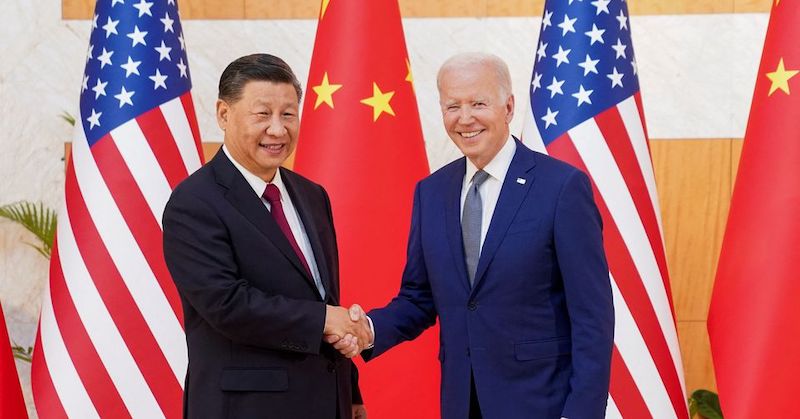The Biden administration intends to remove several Chinese organisations from a red flag trade list amid better cooperation between the Washington and Beijing.
The decision to remove them soon from the so-called “unverified” list was made possible by the Chinese government’s increased willingness to allow US site visits, a US official told Reuters on Wednesday.
The decision signals a degree of renewed cooperation between the world’s two largest economies which are locked in a heated trade and technology war.
Also on AF: US Ropes in Japan, Netherlands to Tighten China Chip Curbs
When implemented, the decision would mean that US exporters will no longer have to conduct additional due diligence before sending goods to the Chinese entities. But it may not herald a broader thaw.
Asked about the decision at a Chinese foreign ministry briefing on Thursday, spokesman Wang Wenbin said they urged the United States to stop taking unfair and discriminatory practices against certain Chinese companies.
The number or names of entities designated for removal was not able to be determined.
Companies are added to the unverified list when the United States is unable to complete on-site visits to determine whether they can be trusted to receive sensitive US technology exports. But such inspections in China require approval from China’s commerce ministry.
Under new rules announced in October, if a government prevents US officials from conducting site checks at companies on the unverified list, Washington may add them to the entity list after 60 days, and impose much tougher penalties.
“The goal of (that rule) was to drive better behaviour from countries that were not allowing end-use checks,” US export control chief Alan Estevez said at an event earlier this month.
“We are seeing better behaviour,” he said, specifically singling out Beijing.
- Reuters, with additional editing by Vishakha Saxena
Read more:
US Chipmakers Selling Advanced Chips to China, Says ASML Chief
US Fears China Flooding Global Market With Older Chips
SoftBank’s Arm Cannot Sell Cutting-Edge Chip Designs to China
US Lawmakers Announce Bill to Ban China’s TikTok ‘For Good’
























